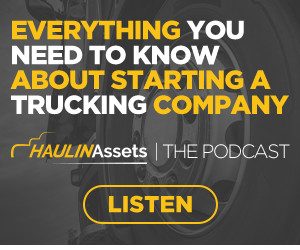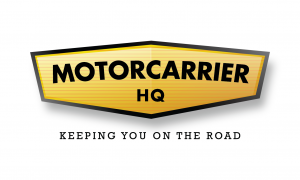Calculate Your Cost-Per-Mile
The most important number you should be able to calculate is the average cost-per-mile. We’ve created a list of each expense to give you an idea of what you can expect to pay and ways you can plug in your own numbers to calculate the cost for your own trucking company.
A good cost-per-mile means you can run a more successful trucking company. But you don’t have to do it alone.
Learn more about why this number is so important down below.
Let Us Help You Make Money
Knowing your cost-per-mile can make or break your trucking company. Whether you’re looking to get started, or have been in the business for a while, let us save you time and money by taking care of the paperwork for you.
TALK TO US
Get your Motor Carrier Authority in less than 24 hours.
Understanding your company’s cost-per-mile is an important tool that will help you make better business decisions in several different areas. After I explain what the cost-per-mile is, I will give you the “so what” and show you how to use it. Your cost-per-mile calculation can be simple or a little bit complicated. The more complicated version will give you greater detail and help you make even better decisions.
When calculating cost-per-mile, I like to say there are three methods:
Let’s take a look at all three by analyzing Haulin Assets’ first three months of operation to determine its three-month cost-per-mile.
During that three-month period, I drove 31,307 total miles.
For the simplest cost-per-mile calculation, you merely divide the total expenses from your profit and loss statement by the total number of miles you drove. You can see the Haulin Assets’ profit and loss statement in the show notes for episode 17 of the podcast. The math is simple: $52,440.37 / 31,307 miles, which equals $1.67 per mile.
This number will get you close to your actual cost-per-mile, but it is not exact. The biggest reasons being:
- Some expenses like lumper fees are not true expenses, because they get reimbursed.
- Some expenses like your full truck payment are not fully accounted for on the profit and loss statement.
If you don’t have a profit and loss statement, shame on you, but you can just add all your expenses together and divide that by the number of miles you ran during the same time period you used for expenses.
If you want a true representation of what your cost-per-mile is, you need to list each expense individually. Here is how I did it:
| Category | Calculation | Cost-Per-Mile |
|---|---|---|
| Driver pay | $13,885.92/31,307 = | $0.44 |
| Fuel | $16,464.85/31,307 = | $0.53 |
| Truck insurance | $4,979.16/31,307 = | $0.16 |
| Worker’s compensation insurance | $414.00/31,307 = | $0.01 |
| Truck payment | $1,480.06/31,307 = | $0.05 |
| Trailer payment | $896.84/31,307 = | $0.03 |
| Dispatch/factoring | $5,959.25/31,307 = | $0.19 |
| Maintenance and repairs | $4,167.67/31,307 = | $0.13 |
| IRP | $414.41/31,307 = | $0.01 |
| Subscriptions | $408.52/31,307 = | $0.01 |
| Miscellaneous/Overhead | $2,318.80/31,307 = | $0.07 |
That makes a total cost-per-mile of $1.64. Even though the overall cost-per-mile using this method is only $0.03 different than the good method, over 10,000 or more miles a month, that adds up to several hundred dollars.
Let’s point out some of the things you need to keep in mind.
1. These numbers are three-month totals for May, June, and July.
2. Most of the expenses listed above came directly from the profit and loss statement. Here are the exceptions:
- The truck and trailer payments. Your entire truck and trailer payments don’t show up on the profit and loss statement, only the interest portion does. I account for that by not including any of the interest listed on the profit and loss statement in my cost-per-mile calculation, but I use the actual truck and trailer payment amounts. (Three months totaled together)
- IRP. I did not make an IRP payment during May, June, or July, so I took the total amount I paid for the year and divided it by four to get three months worth.
- Categorized expenses. To simplify things I categorized several expenses together:
- Subscriptions include: my cell phone, pre-pass, and QuickBooks.
- Misc/overhead includes: bank fees, compliance costs, ELD, parking, permits, scale fees, taxes, tolls, and washouts.
Don’t put startup costs into your cost-per-mile calculation, unless you are paying off a loan you used to pay for your startup costs.
If you really want to get the most out of your cost-per-mile for decision making, you need to understand your variable costs versus your fixed costs.
Fixed costs are expenses that don’t really change much based on how many miles you drive. Your truck payment is a perfect example of a fixed cost; it stays the same whether you drive one mile or 20,000 miles in a month. Insurance is another good example.
Variable costs are expenses that vary based on the number of miles you drive. Fuel is a great example; the more miles you go the more fuel you will have to buy. Driver pay and maintenance/repairs are more good examples of variable costs.
You want to add all your fixed costs together and all your variable costs together so you know the total of each. Here are what I considered my fixed costs and variable costs. Note, some of my misc/overhead costs were fixed and some were variable, so I have some in each category.
Fixed Costs
- Truck insurance
- Worker’s compensation
- Truck payment
- Trailer payment
- IRP
- Subscriptions
- Misc/overhead (Bank fees, compliance, ELD, and parking)
Variable Costs
- Driver pay
- Fuel
- Dispatching/factoring
- Maintenance and repairs
- Misc/overhead (Permits, scale fees, tolls, taxes, and washouts)
My total variable costs for Haulin Assets were $1.33, and my fixed costs were $0.31.
So What?
There are three key areas where knowing your cost-per-mile will put you ahead of the pack.
1. It will help you know if you should take a load or not.
Because I know my overall number, when a broker gives me a rate for a run, rather than taking a load on a wing and a prayer, I’ll know if I can make money at the price they are willing to pay.
With an overall rate of $1.64, I don’t want too many loads under that rate and I will usually want to be well above that, so I make a profit.
Knowing your variable costs and fixed costs will help you be even more accurate. I use those numbers at times when I take a load into an area where I know the load coming out is going to pay crappy. If I am covering at least my variable costs, I know I am not digging myself into too deep of a hole.
2. It can give you a good idea whether or not you will be able to make money based on current rates brokers and shippers are paying.
This is even before starting your trucking company.
If you are going to run a reefer like I am, you can use this calculator and a lot of my numbers to help figure out what your cost-per-mile will be. You can just swap out your numbers for mine as you start getting an idea what your costs, like what your truck and insurance payments will be.
3. Knowing how much your maintenance and repairs will cost can help you see trouble before it starts causing you lots of problems.
If your normal cost-per-mile in maintenance/repairs is $0.15 and then all of a sudden it starts getting significantly higher, you might either be paying too much at the mechanic shops or you might have a truck that is getting too old and costing too much. It might be time for a new truck.
Also, if you see I am paying around $0.53 per mile for fuel and you are paying $0.58 per mile, a 10 percent increase, you might need to ask yourself if you are buying fuel at the right place or if your fuel card is not getting you very good discounts.
Wow, that is a lot of info. Cost-per-mile is not easy, but understanding it is important and will help you be a better business owner. It’s one of those important changes in your mindset. I recommend calculating your cost-per-mile for your first three months, again after your first six months, and then at the year mark.
After your first year in business you should calculate your cost per mile every six months. Good luck!





